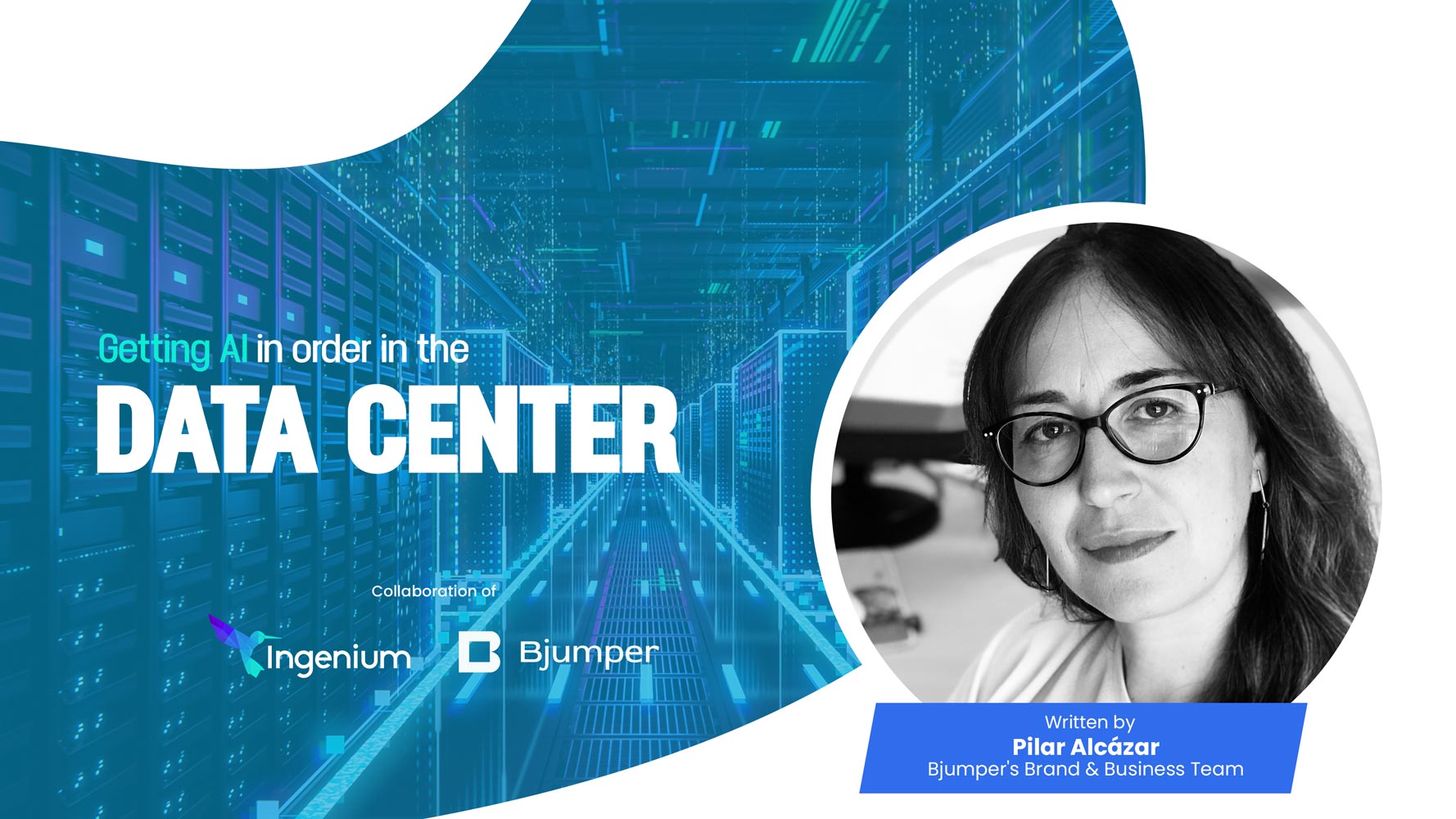By Pilar Alcázar | Brand & Business Team Bjumper
As many of you know, the company to which I belong, Bjumper, which is my home and where I was born, is now in a process of transformation.
Recently we had a conference in which many ideas came out, but above all a clear vision, we will build the Autopilot of the Data Center (we do not yet have a name for it), something that on the other hand many of us have been in our heads for years, from automatic scanners for asset management, real-time climate control systems, automatic load balancing based on predictive systems, and points that we haven't even identified yet.
Years ago all these ideas were possible (we had the technology and the knowledge), but not at a cost that the market could afford, they were definitely a dream.
However, today something has changed, and it's not AI (which on the other hand has been around for a long time, although perhaps less noisy), it's that advanced AI-based technology is now available to everyone, today it's easier and cheaper to access. It allows us to improve products quantitatively at a cost that is now applicable to data centers.
While I don't know much about the development world, I'm learning a new language! 🙂 , there is something about this sector that fascinates me and that is the ability to share knowledge. When a large community works in unison, the results are what we are all seeing around us today, it is growing exponentially. To which I wonder, why not create a much more collaborative data center community? (Another little dream, but for another article.)
What we were going for, thanks to this let's say "collaborative" community, today we have access to free LLMs in the market so that others can develop applications in a faster, cheaper and more efficient way and most importantly with an interface designed to understand and generate human language. I think that's where the difference lies.
Does that mean we're creating a data center Alexa? No, or at least not the Alexa we know today.
It seems that it is going to be difficult to stand out, the market is invaded by AI (at least on paper) but, what does AI bring to the Data Center today? I started looking deeper and these are some of the initiatives I found:
- Memory disaggregation in data centers: a study by Ewais and Chow (2023) reviews recent proposals on memory disaggregation, highlighting how it can address the problem of resource underutilization by decoupling computational elements from memory resources, although this for the performance of applications on machines, is very interesting, in the day-to-day life of those who operate Data Centers it is not that it affects them, beyond the fact that this is a line of optimization in space, or not 😔, of Data Centers (more efficient machines, need for fewer machines to do the same).
- Data Storage and Management: Moreno et al. (2021) propose a theoretical model for a storage management system for virtual learning environments based on big data, using AI technologies to optimize the processing of stored data. This line (really interesting because the data storage growth model is not sustainable), has a real effect on data center management similar to the previous one.
- Unified Storage Security: Hussain et al. (2020) address vulnerabilities, threats, and attacks in centralized storage systems, proposing an AI-based framework to mitigate these issues and improve security. Super important and I am sure that these lines of research will have a long way to go, and this one is true that it helps those of us who are close to the management of the Data Center infrastructure to minimize risks.
However, while these lines (they are just an example of what I have found) are very interesting, I have not been able to find specific cases or studies that focus on improving the management of critical physical infrastructure of DCs using AI.
The closest have been several cases related to issues of consumption prediction and early identification of failures, which you will allow me, we are talking more about machine learning than AI.
They may try to sell us how AI will help us optimize energy consumption and be more efficient, but, on the contrary, these applications will be hosted in Data Centers where the power requirement and cooling needs are also continuously increasing. So I ask myself, will AI help the data center or will it give us more headaches, because what is undoubted is that it will be very present.
I cannot answer that, unfortunately, but where I do see a fundamental role of AI in Data Centers is when it comes to automating the management of physical infrastructure, when it comes to converting tedious tasks into automatic ones that leave space, in hours and mentally, to the people who work in the Data Center to focus on tasks richer in planning and analysis (we are going to miss it).
So what role can AI play in the day-to-day operation of DC?
We cannot ask to have the DC rabbit by now (if you have not seen it, take a look here https://www.rabbit.tech/keynote it is very worth it) but we can ask it now and just to start:
- Virtual assistants to automate responses to frequently asked questions.
- Manage technical support tickets and guide staff through diagnostic and troubleshooting procedures. Furthermore, this point is essential to solve the lack of qualified personnel that exists in the market.
- Automated planning and execution of IT and Networking infrastructure migration projects with predictive algorithms to plan the migration, identifying the best time to make changes with the minimum impact on operations.
- Assess workloads by teams and execution times to optimize project implementation times.
- Automate basic tasks of access permissions to Data Centers based on planned projects.
- The documentation! That sometimes we seem more administrative than technologists. For audits, reports, etc. Being able to automate these tasks and make them much richer in content would provide time and visibility.
There is really only one exercise to do, and that is, what am I doing today and what should I do to meet the objectives of my company's business or service? On many occasions (it happens to me on a daily basis), what I am doing is not adding value and takes me away from the company's objectives.
If we identify these points, we have room for improvement in the operation where AI can do a lot for us.
Step by step we will create a different way of operating the Data Center, better, safer and above all designed for people. We are not machines and that is why what we can contribute to our companies is much more than they could, we are going to use them to allow us to be more human.
With love, Pilar Alcázar.
About this article
The original post of this article was published on Bjumper's blog and was adapted for publication on Ingenium's blog Ingenium. Our objective is to bring valuable content to readers and contribute to the Data Center industry from the knowledge of great exhibitors in the field and with extensive experience in the market.



